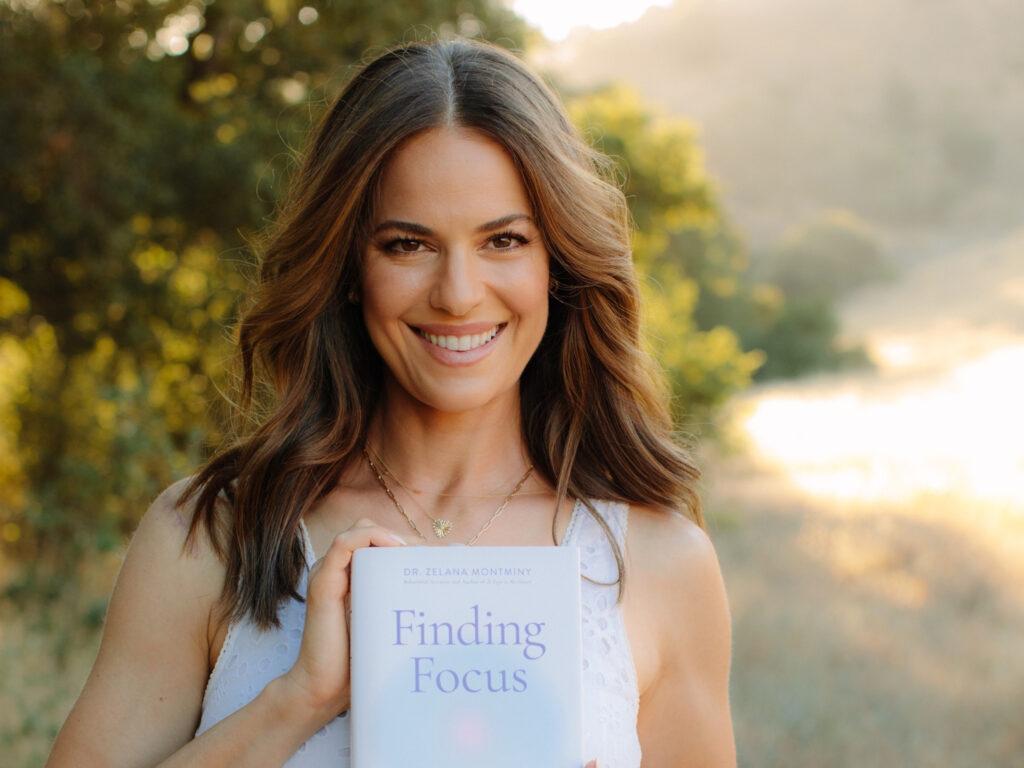How To Reclaim Focus As A Form Of Self-Care

In recent years, there’s been a lot of conversation around how self-care is a way women can recharge. But what if we shifted our attention to how to use focus as a form of self-care?
Dr. Zelana Montminy, a renowned behavioral scientist, dives into this in her new book, Finding Focus: Own Your Attention in an Age of Distraction. She offers women practical tools to reclaim their focus and reimagine self-care not as escapism, but a path to mental clarity.
Her Agenda spoke with Zelana about her book and her perspective on what it really takes to protect our time, energy, and peace in a world full of distractions.

Her Agenda: First, could you share your background and what inspired you to write “Finding Focus: Own Your Attention in an Age of Distraction?”
Dr. Zelana Montminy: I’m a behavioral scientist and clinical psychologist. My work originally focused on happiness research. Over time, I realized that happiness alone isn’t an end goal and often leaves people unfulfilled. That led me to study resilience, which became the subject of my first book. As I continued working with clients and organizations, I noticed people were burned out, anxious, and constantly task-switching, even those with successful careers and abundant resources.
Through my research and client work, I realized that the root issue wasn’t jobs or circumstances, but our inability to focus. Attention, not time, is our most valuable resource, and it’s being hijacked daily. That realization inspired Finding Focus, a book not about quick productivity hacks, but about reclaiming our attention, living with intention, and strengthening our connection to ourselves and others.
Her Agenda: For those who feel they’ve learned how to manage their time and attention but aren’t sure how to take the next step toward living with greater intention, what advice would you give?
Dr. Zelana Montminy: As women, we often wear multitasking as a badge of honor, but it erodes our ability to thrive. The brain isn’t built to multitask, and it ultimately decreases productivity. One of the most important shifts we can make is letting go of the belief that we must multitask to survive. I also encourage women to rethink balance. Balance suggests everything gets equal weight every day, which isn’t realistic. Rhythm is more humane; some weeks work takes priority, other times it’s kids, relationships, or friendships. Focus comes from choosing your priority.
I also suggest attention budgeting. Like money, attention is finite. Eliminate or batch distractions that feel urgent but don’t serve deeper values.
Her Agenda: What do people get wrong about boundaries?
Dr. Zelana Montminy: I think boundaries have been so overused. People think they’re like walls, that you have to shut people out or shut them down, and that they need to be really harsh. I like to think of boundaries more as bridges; they create the foundational conditions for connection without anger or resentment.
A lot of people confuse boundaries with control. A boundary is not, “You can do this, you can’t do that.” It’s more, “Here’s what I will do if this happens.” It’s about your own behavior, not managing someone else. That subtle shift in understanding what a boundary really is changes everything.

Her Agenda: How can we use focus as a form of self-care?
Dr. Zelana Montminy: We’ve been sold that self-care means adding a spa day or a new routine. Real self-care isn’t about adding, it’s about reclaiming attention so life feels less fractured. It’s protection, guarding your attention by saying no, muting notifications, resting. Its presence and focus let you be in the moment, which is deeply restorative.
Her Agenda: What do you hope women take from this book?
Dr. Zelana Montminy: Permission to come back to themselves and relief from the pressure to do it all. My book shows women that focus is not about adding more. It’s about reclaiming attention as a form of self-trust. Women will walk away with permission to release the myth of balance and protect what actually matters.






